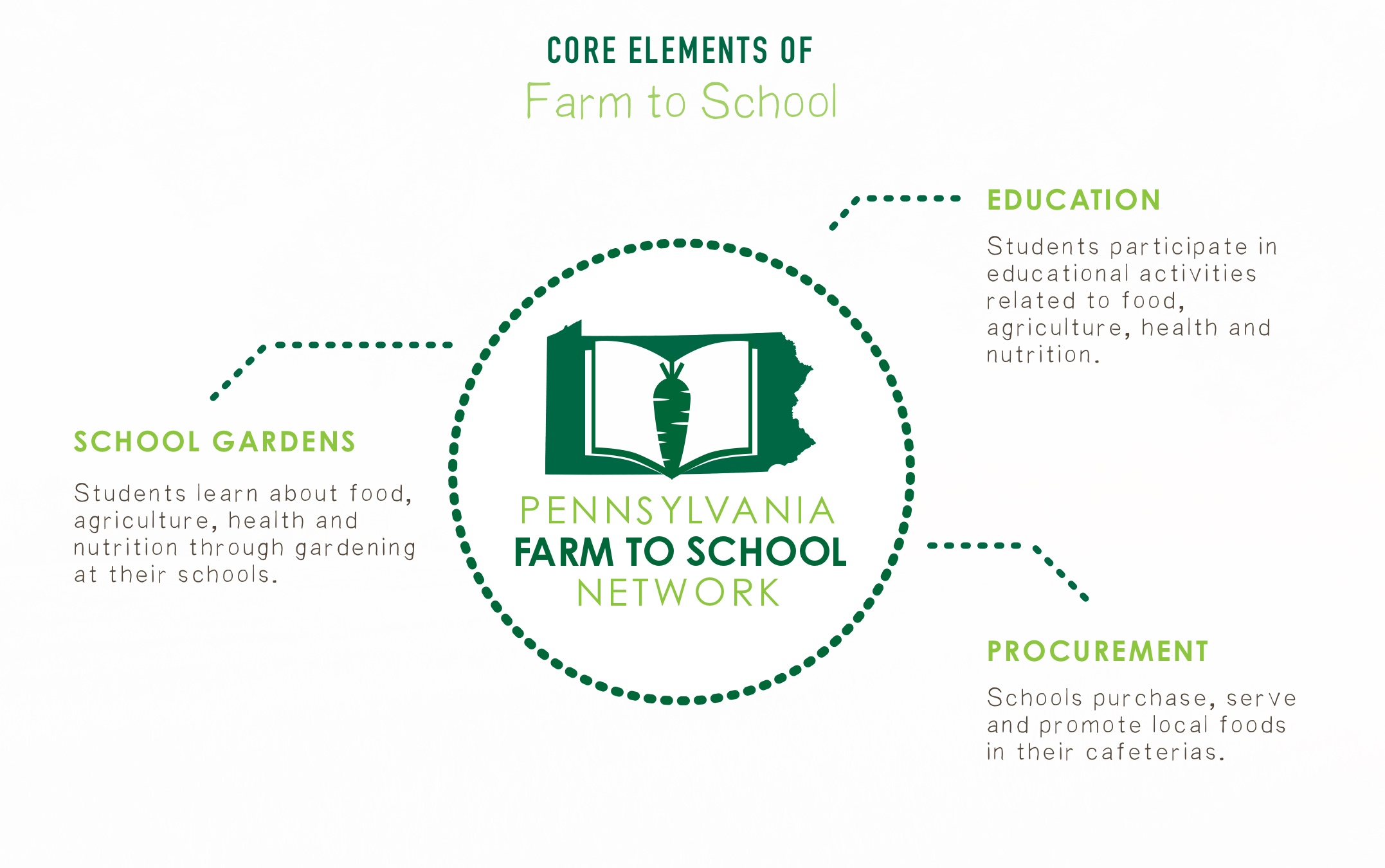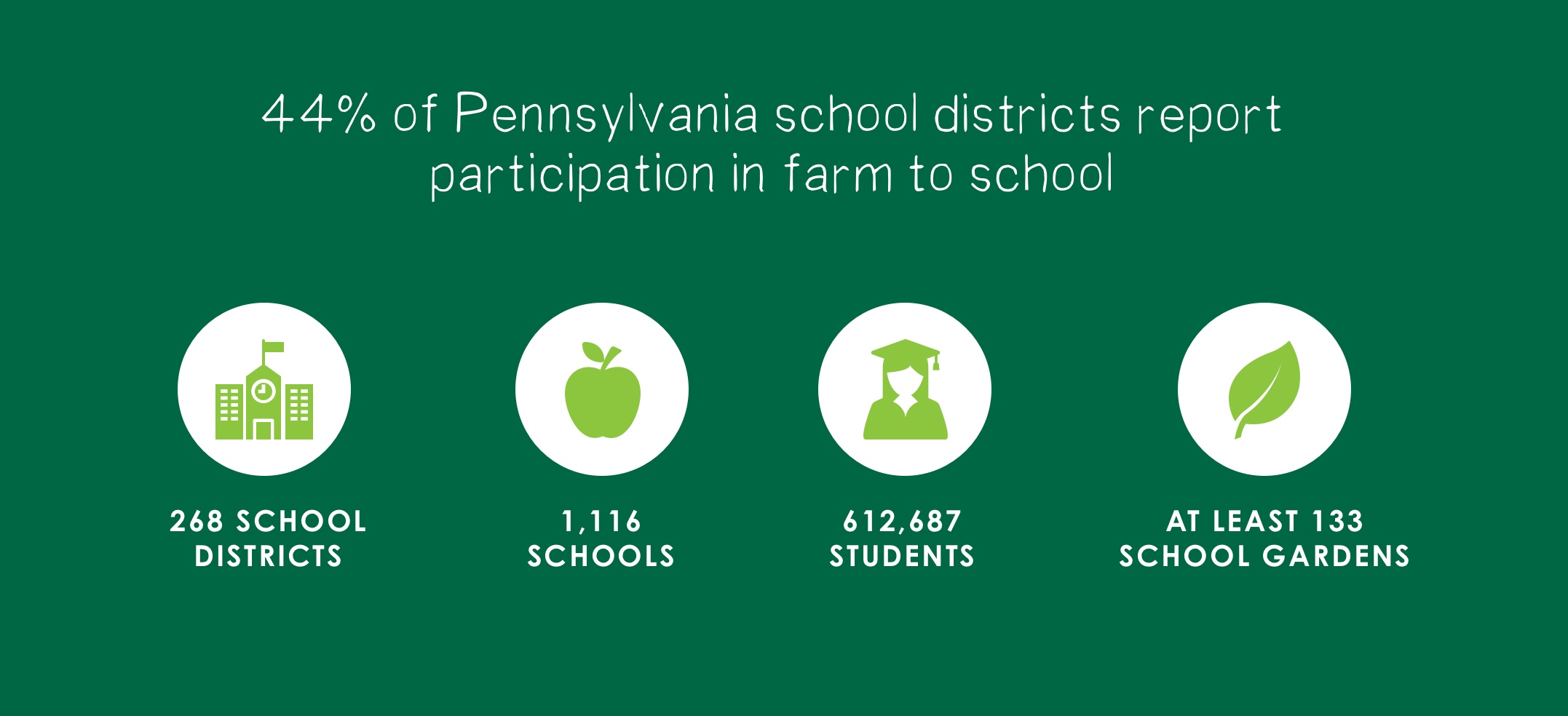Farm to School
Farm to School enriches the connection communities have with fresh, healthy food and local food producers by changing food purchasing and education practices at schools and early care and education settings. Students gain access to healthy, local foods as well as education opportunities such as school gardens, cooking lessons and farm field trips. Farm to school empowers children and their families to make informed food choices while strengthening the local economy and contributing to vibrant communities.
Farm to School implementation differs by location, but always includes one or more of the following three core elements of Farm to School:
- Procurement: Local foods are purchased, promoted, and served in the cafeteria, or as a snack or taste-test
- Education: Students participate in education activities related to agriculture, food, health, or nutrition; and
- School Gardens: Students engage in hands-on learning through gardening. Farm to School empowers children and their families to make informed food choices while strengthening the local economy and contributing to vibrant communities.
Pennsylvania invested $18,059,700 in local foods, with the average school district spending 16% of their budget on local products.
- 72% Vegetables
- 77% Fruit
- 59% Milk
- 18% Meat and Poultry
Pennsylvania ranks 22 out of 50 states in local food purchasing.

Kids Win
Farm to school provides all kids access to nutritious, high quality, local food so they are ready to learn and grow. Farm to school activities enhance classroom education through hands-on learning related to food, health, agriculture and nutrition.
Farmers Win
Farm to school can serve as a significant financial opportunity for farmers, fishers, ranchers, food processors and food manufacturers by opening the doors to an institutional market worth billions of dollars.
Communities Win
Farm to school benefits everyone from students, teachers and administrators to parents and farmers, providing opportunities to build family and community engagement. Buying from local producers and processors creates new jobs and strengthens the local economy.